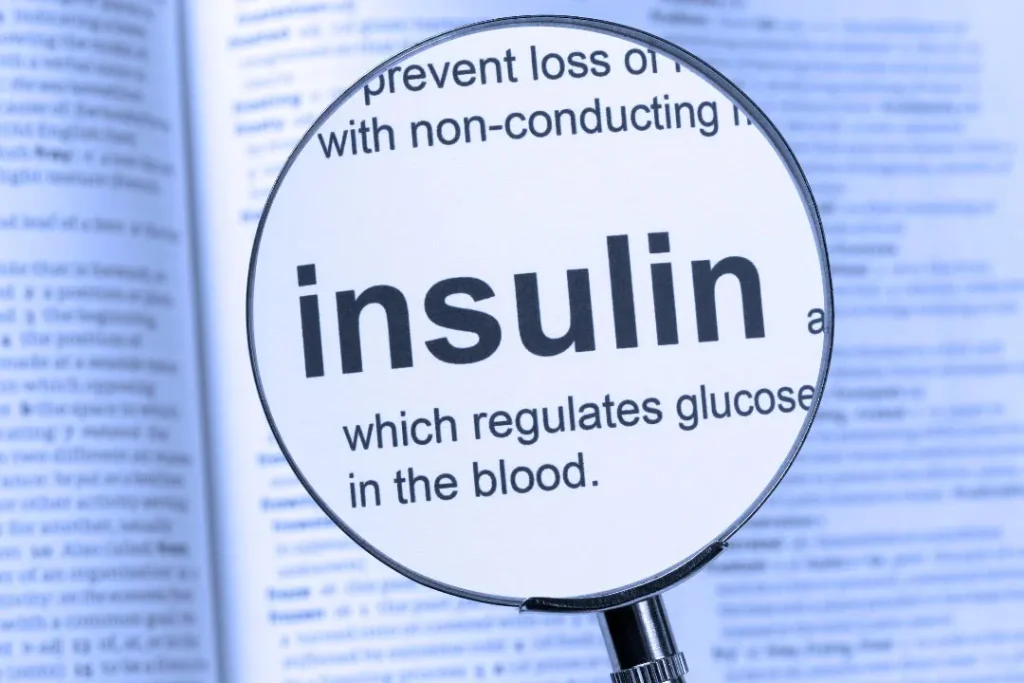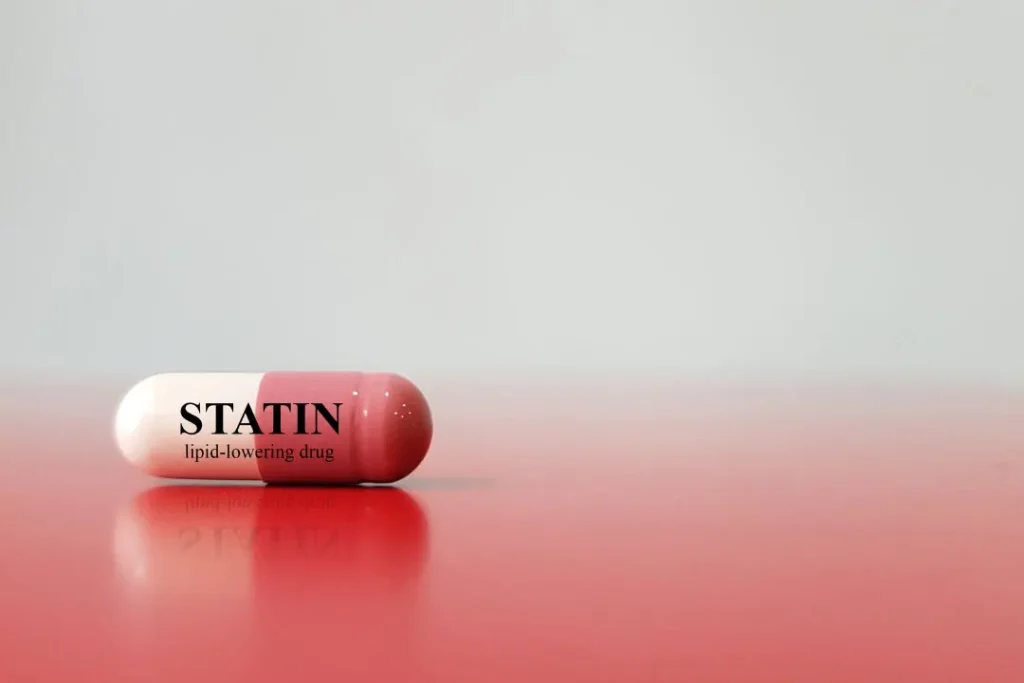Coenzyme Q10, or CoQ10, is a natural compound that plays a crucial role in energy production within cells. Statin use may reduce CoQ10 levels in the body, sometimes leading to muscle pain and weakness. We’ll discuss some benefits of taking CoQ10 with statins and answer the question, “How much CoQ10 should I take with statins?”
Statins belong to a class of drugs used to decrease lipid levels in the body, and they are usually prescribed for high cholesterol. Statin therapy can diminish the risk of high cholesterol-related illnesses, including heart disease. However, statins are not without drawbacks: they can sometimes cause muscle pain, elevated liver enzymes in the blood, and, in some cases, type 2 diabetes. As a result, many have recommended supplementation with antioxidant coenzyme Q10 (CoQ10) to mitigate the side effects of statins. Based on scientific research regarding CoQ10 and its effects on the body, here are some important facts about statin side effects and the appropriate dosage of CoQ10 in relation to those side effects.
You May Also Like:
The Best Time to Take CoQ10 and 3 Great CoQ10 Benefits
Finding the Best Coenzyme Q10 Brand: 5 Top Products Reviewed
How much CoQ10 should I take with statins for muscle pain?
Statin therapy can lead to muscle pain and weakness in a condition known as statin myopathy. Although this pain is typically mild, it can disrupt daily activities involving prolonged movement or heavy lifting. In some cases, the muscle pain caused by statins can be severe and may be a symptom of rhabdomyolysis, a condition in which muscle cells deteriorate.
CoQ10 has the potential to reduce the severity of muscular pain and weakness associated with statins. In a 2014 study of individuals undergoing statin therapy, those who took CoQ10 supplements reported less intense muscle pain and fewer instances of their pain interfering with the strenuous tasks of their day-to-day lives. A daily dose of CoQ10 can help alleviate the muscle pain caused by statins.

How much CoQ10 should I take with statins to prevent high blood sugar?
Statins can interfere with the regulatory functions of insulin, a hormone that regulates the level of sugar (as glucose) in the blood. They achieve this by increasing the body’s resistance to insulin, which reduces the effectiveness of its natural stores of this vital hormone. This can result in high blood sugar levels, which may eventually lead to type 2 diabetes in severe cases. To maintain healthy blood sugar levels, glycemic control, or carefully monitoring and modifying blood sugar levels, is necessary.
CoQ10 has been extensively studied for its potential to lower blood glucose levels. In a 2022 review, CoQ10 was found to reduce fasting glucose while increasing insulin synthesis. By increasing the amount of insulin produced, CoQ10 can counteract the reduced efficacy of insulin caused by statins.


How much CoQ10 should I take with statins to support overall heart health?
CoQ10 not only helps mitigate some of the side effects of statin therapy but also helps support the overall health of the heart and the circulatory system, much like statins themselves. Cholesterol buildup can harden the arteries in a condition called atherosclerosis. This condition causes the heart to work harder, which can prematurely age the heart and lead to cardiovascular issues like heart disease, heart attack, and stroke.
Statins are often prescribed to reduce the risk of these conditions, and CoQ10 can help in this process as well. A variant of CoQ10 known as mitoquinol mesylate was found in a 2018 study to improve blood vessel function, reducing the heart’s workload and potentially maintaining its health. When taken alongside statins, a daily dose of 10 mg or more of CoQ10 can have a greater benefit on heart health.
How much CoQ10 should I take with statins to lower my cholesterol?
In addition to supporting healthy heart function, CoQ10 can help address the root cause of high cholesterol. There are two types of cholesterol in the human body: high-density lipoprotein (HDL) and low-density lipoprotein cholesterol (LDL). HDL cholesterol is commonly called “good” cholesterol due to its ability to transport excess cholesterol in the blood to the liver, where it can be processed and expelled from the body.
On the other hand, LDL cholesterol can lead to arterial buildup, so it’s commonly called “bad” cholesterol. CoQ10 has been studied for its potential to raise HDL cholesterol while lowering LDL cholesterol levels. Although more research is needed, and CoQ10 is not a substitute for statins, the two taken together can work to increase “good” cholesterol while reducing “bad” cholesterol.


How much CoQ10 should I take with statins to maintain a healthy antioxidant intake?
Research has suggested that statins impair mitochondrial function, decreasing the mitochondria’s capacity to produce cellular energy in the form of adenosine triphosphate (ATP) while also wearing down the protective mitochondrial membrane. One proposed cause for the decline in mitochondrial function is the observable decrease of CoQ10 levels in people taking statins.
Although the extent of CoQ10 depletion varies depending on the type of statin, research indicates that levels can decrease by up to 40% over a 30-day period of statin therapy. While the body produces some CoQ10 naturally, CoQ10 supplementation can help maintain healthy levels of the mitochondria-boosting antioxidant when taking statins.
However, CoQ10 is known to have poor bioavailability, especially when taken as an oral capsule. This may be because CoQ10 has difficulty penetrating the mitochondrial membrane. However, the CoQ10 variant mitoquinol mesylate, marketed under the brand name MitoQ, overcomes this limitation. MitoQ has been found to easily and readily pass through the mitochondrial membrane, offering direct support to these cellular power generators, which may be damaged by statin therapy.


How much CoQ10 should I take with statins? Try 10 milligrams of mitoquinol mesylate instead.
CoQ10 has been shown to help mitigate many of the negative effects of statins, including high blood sugar and muscle pain. It also has the potential to contribute to lowering cholesterol and promoting heart health. However, owing to the low bioavailability of CoQ10, its variant, mitoquinol mesylate, may prove a better option. Mitoquinol mesylate directly supports mitochondria, which are found in almost every cell in the body. Therefore, mitoquinol mesylate can do more than just reduce the side effects of statins – it can help promote total, whole-body health.
Additional Links For Further Reference:
NIH National Library of Medicine: Statins and Mitochondria
NIH National Library of Medicine: Supplementation of Coenzyme Q10 among Patients with Type 2 Diabetes Mellitus
European Journal of Medical Research: The effect of statin treatment on circulating coenzyme Q10 concentrations
Important Note: The information contained in this article is for general informational purposes only, and should not be construed as health or medical advice, nor is it intended to diagnose, prevent, treat, or cure any disease or health condition. Before embarking on any diet, fitness regimen, or program of nutritional supplementation, it is advisable to consult your healthcare professional in order to determine its safety and probable efficacy in terms of your individual state of health.
Regarding Nutritional Supplements Or Other Non-Prescription Health Products: If any nutritional supplements or other non-prescription health products are mentioned in the foregoing article, any claims or statements made about them have not been evaluated by the U.S. Food and Drug Administration, and such nutritional supplements or other health products are not intended to diagnose, treat, cure, or prevent any disease.
Table of Contents


